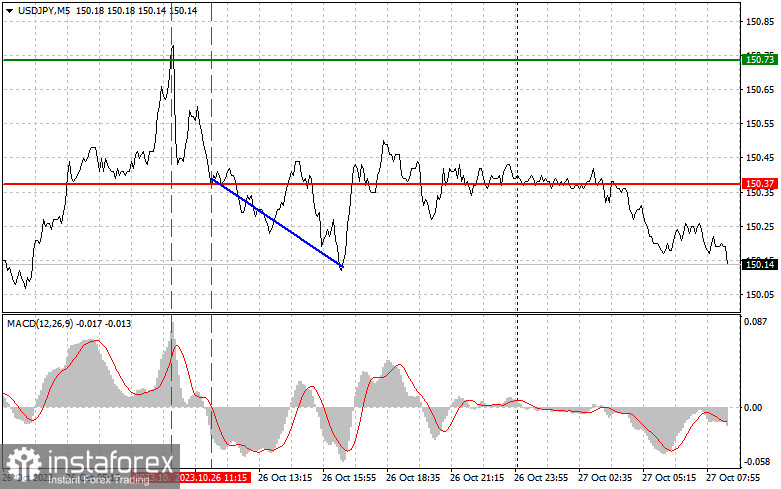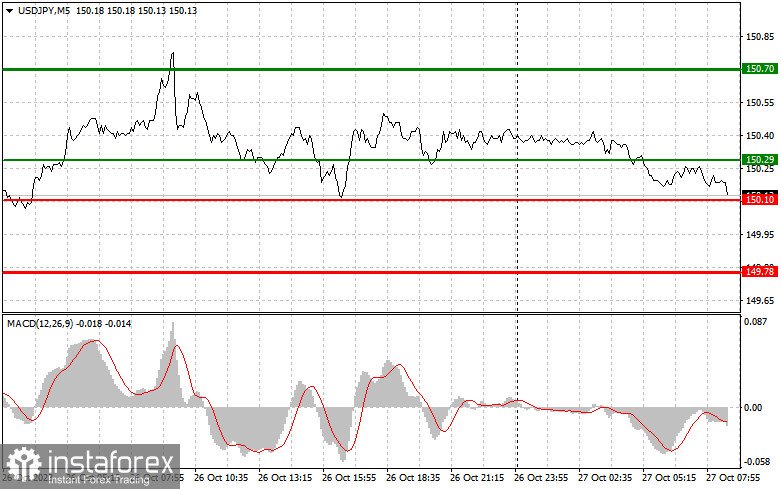Analysis of transactions and tips for trading USD/JPY
Further growth became limited because the first test of 150.73 took place when the MACD line moved sharply upward from zero. As for the second test, it occurred when the MACD line started moving down from zero, prompting a signal to sell. This resulted in a price decrease of around 25 pips.

Once again, the Bank of Japan intervened around 150, and after an active decline from 150.70, it became clear that the pressure on dollar would increase even in the face of good statistics on the US economy. Today, a number of important reports will come out, including the Fed's preferred measure of inflation - the PCE index. Any reduction in price pressure will weaken dollar's position and strengthen risk appetite. Data on consumer spending and income in the US, along with the University of Michigan's consumer sentiment index and inflation expectations, will also play a significant role in determining the direction of the pair.
For long positions:
Buy when the price hits 150.29 (green line on the chart) and take profit at 150.70. Growth will unlikely occur due to the intervention of the Bank of Japan. Nevertheless, when buying, ensure that the MACD line lies above zero or just starts to rise from it.
Also consider buying USD/JPY after two consecutive price tests of 150.10, but the MACD line should be in the oversold area as only by that will the market reverse to 150.29 and 150.70.
For short positions:
Sell when the price reaches 150.10 (red line on the chart) and take profit at 149.78. Pressure will return in the event of a return below 150. However, when selling, ensure that the MACD line lies below zero or drops down from it.
Also consider selling USD/JPY after two consecutive price tests of 150.29, but the MACD line should be in the overbought area as only by that will the market reverse to 150.10 and 149.78.

What's on the chart:
Thin green line - entry price at which you can buy USD/JPY
Thick green line - estimated price where you can set Take-Profit (TP) or manually fix profits, as further growth above this level is unlikely.
Thin red line - entry price at which you can sell USD/JPY
Thick red line - estimated price where you can set Take-Profit (TP) or manually fix profits, as further decline below this level is unlikely.
MACD line- it is important to be guided by overbought and oversold areas when entering the market
Important: Novice traders need to be very careful when making decisions about entering the market. Before the release of important reports, it is best to stay out of the market to avoid being caught in sharp fluctuations in the rate. If you decide to trade during the release of news, then always place stop orders to minimize losses. Without placing stop orders, you can very quickly lose your entire deposit, especially if you do not use money management and trade large volumes.
And remember that for successful trading, you need to have a clear trading plan. Spontaneous trading decision based on the current market situation is an inherently losing strategy for an intraday trader.





















